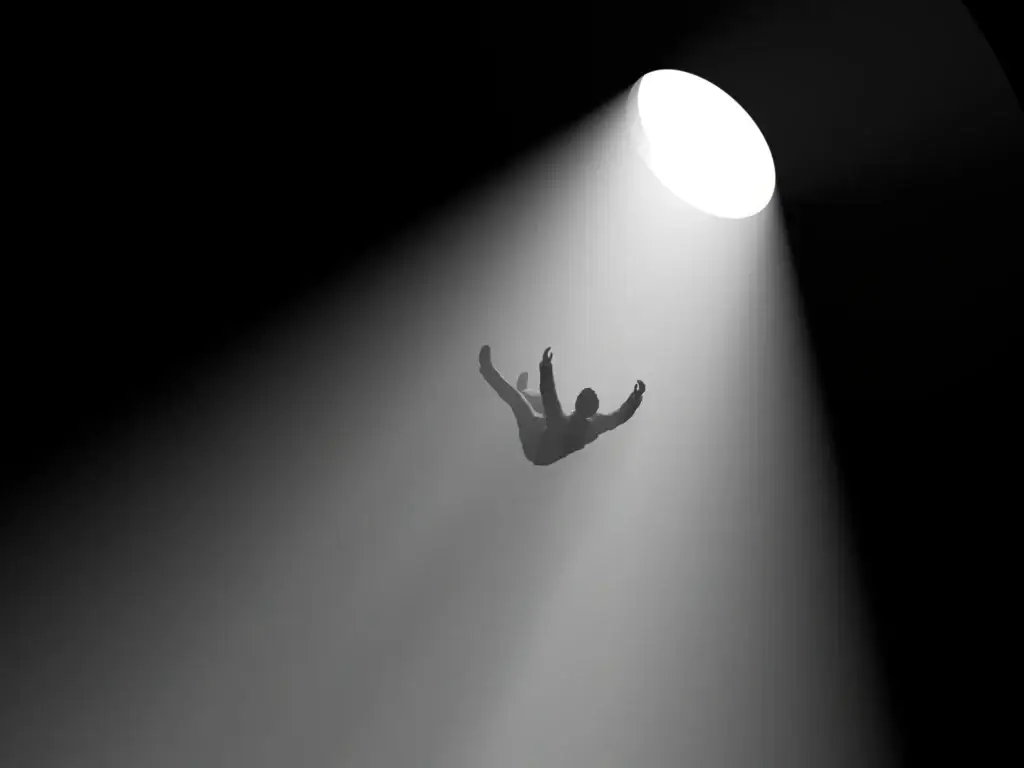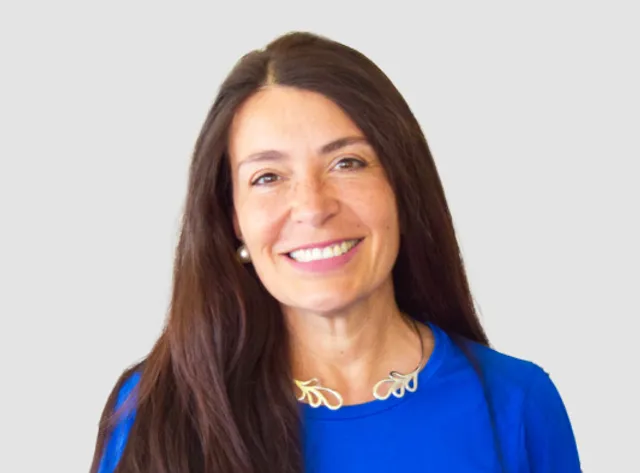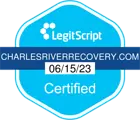Can Opioids Lead to Depression?
Did you know that around 131,778,501 opioid prescriptions were dispensed across America in 2022? Opioids have been a standard go-to solution for managing pain among chronically ill people. Sadly, people misuse their medications, and others use opioids without medical advice, leading to Opioid Use Disorder (OUD).
OUD touches around 2.1 million Americans and can adversely affect your mental health. As such, professionals link opioid use to cognitive issues such as depression. In this article, we’ll look at the relationship between opioids and depression, how to recognize if you have a problem, and the treatment options you have.
What Are Opioids?
Opioids are a class of drugs used to regulate pain. They contain natural or synthetic chemicals that reduce pain when interacting with the body. Medical doctors prescribe opioids to help people deal with mild to intense pain. It is also important to note some users can access them without a doctor’s approval.
Doctors can prescribe opioids for the following issues:
- Acute pain
- After surgery pain
- Vascular pain
- Cancer-related pain
- Chronic diarrhea
- Severe coughing
The Difference Between Opioids and Opiates
While most people use the terms opioid and opiate interchangeably, they are different. Opiates are natural and derived from the poppy plant. They include heroin, codeine, morphine, and opium. On the other hand, the term opioid means natural, synthetic, and semi-synthetic chemicals that work like opiates. This means all opiates are opioids, but not all opioids are opiates. Synthetic opioids include oxycodone, fentanyl, and hydrocodone.
How Do Opioids Work?
Opioids work by binding to opioid receptors found in different parts of the body, like the spinal cord and brain. These receptors perform various body functions like controlling pain signals, regulating mood and stress, breathing, and gastrointestinal functions.
The opioids bind with receptors and block pain signals. Because the brain doesn’t register the pain, the body doesn’t feel severe pain. Opioids also stimulate dopamine production, which controls the feeling of pleasure. Opioid users may experience euphoria once the medication kicks in.
How Do Prescription Opioids Cause Depression?
While the primary use for opioids is pain treatment, they also affect mood and the brain’s reward system. They can give bursts of feelings of pleasure and euphoria for short periods before fading. Repeated use of the medication can affect how the brain works and lead to dependence. This is more prevalent for users with pre-existing mental conditions like anxiety. They’ll experience relief from the short-lived bursts of euphoria and slowly become addicted.
Prolonged use of opioids can impair how your brain regulates mood. It can also affect your sleep patterns, which contributes to more mood issues. Over time, the receptors become desensitized, decreasing the levels of pleasure. If this goes unchecked, it can lead to depression. That’s why you should always inform your healthcare provider of any mental health issues before they prescribe you opioids.
Relationship Between Opioid Use Disorder and Depression
OUD and depression are serious health issues that often occur together. There is no sure way to know which one comes first, but research shows they can influence each other.
As discussed above, individuals with mental issues, such as depression, may use opioids to treat symptoms. However, they usually do this without talking to their doctor. It can then lead to reckless usage, which can lead to substance use disorder.
On the other hand, opioid use disorder can come first. An overuse of the medication to treat issues like pain can lead to an increased tolerance for the drug. This increased tolerance means you’ll need more to achieve the same effect. This continuous state of longing can lead to depression. Withdrawal from opioid use can also cause physical and emotional stress, which can lead to depression if left unchecked.
Contact a certified medical professional if you experience any symptoms of either addiction or depression. You may spend time and money treating one of them while suffering from a dual diagnosis.
What Is Dual Diagnosis?
Dual diagnosis means the occurrence of both a mental health disorder and a substance use disorder. As such, someone struggling with opioid use disorder is also dealing with mental issues like depression and anxiety.
While knowing which came first is complex, the diagnosis is more important. Whether the drug leads to depression or vice versa, it’s important that a health professional address both issues.
Your physician will put you under treatment for both issues simultaneously. Treating one and neglecting the other can easily lead to a relapse or worsening of the unresolved issue. So, avoid trying self-medication that can worsen your condition.
Signs and Symptoms of Co-Occurring Opioid Use Disorder and Depression
It is essential to keep an eye out for the symptoms of opioid use disorder and depression. It is not an easy task because they share symptoms with other mental disorders.
Let’s look at the symptoms that indicate depression while experiencing OUD.
Drastic Weight Loss
Most mental disorders lead to weight loss. However, when depression and opioid use go hand in hand, weight loss may be the result of a loss of appetite associated with opioids. Poor nutrition and constipation from poor eating habits can also lead to extreme weight loss.
Opioid Overuse
While severe pain can cause individuals to misuse opioids, overconsumption could signal depression. You’ll find yourself or your loved one taking more than the recommended dose to cure depression symptoms.
Suicidal Thoughts
Individuals dealing with severe cases of mental issues will usually have suicidal thoughts. As such, any repeated overdoses of opioids are a sign someone is undergoing depression. It could also mean a suicide attempt, and you should seek medical intervention immediately.
Fatigue and Exhaustion
Depressed individuals will usually exhibit exhaustion, low energy, and fatigue at odd times of the day. They may also have trouble participating in their usual activities.
Increased Irritability
Irritability is usually a sign of someone hiding something or undergoing a crisis. People with OUD and depression usually want to keep to themselves and respond to engagement with a bad temper.
Retreat From Social Life
People with a substance use disorder and a mental health disorder may seem distant. They may no longer want to participate in social activities. They may also hide their opioid use from others.
Obsessing About the Next Dose
If you or a loved one shows any of the signs of opioid addiction and depression, seek immediate treatment. It is difficult to stop, and you’ll need all the support you can get. Depression and a drug use disorder mean there is an increased risk of overdose.
Other common signs of OUD and depression include:
- Loss of interest in hobbies
- Poor concentration
- Withdrawal symptoms in the absence of opioids
Most signs of co-occurring OUD and depression resemble those of other issues. As such, contact your healthcare provider for a professional diagnosis that helps you effectively tackle the situation.
What Are the Available Treatment Options for Opioid Use Disorder and Depression?
You must treat depression and opioid use disorder immediately, whether diagnosed separately or together. Find a treatment facility that focuses on dual-diagnosis therapy. Here are some treatment options for depression and OUD to expect.
Detox
The first step to any opioid treatment is detox. Treatment starts with removing all the opioids in your body. You may experience severe withdrawal symptoms, like cravings, and will likely require support. Most detox facilities provide 24/7 care and medications to help alleviate withdrawal symptoms.
Medications
Your physician can recommend a few medications to help treat OUD and depression at the same time. Medications include naltrexone, methadone, and buprenorphine, which help combat the withdrawal symptoms and longing for opioids. Additionally, chemically treating your depression can help reduce your cravings for opioids as well.
Therapy and Counseling
Addressing the reasons for your OUD and depression is no easy task. You’ll need the discipline to see therapy to the end. Therapy, such as cognitive behavioral therapy (CBT), helps individuals identify and change negative behavior. It also allows clients to take responsibility for their behaviors while under treatment.
Support Groups
A sense of community and belonging is crucial for those suffering from both depression and OUD treatment. Being part of a support group allows you to mingle with others and share your experience. A support group also helps you identify better ways to cope with your situation. Groups like Narcotics Anonymous (NA) and Depression Anonymous (DA) will introduce you to individuals who have experienced similar issues.
Relapse Prevention
The threat of a relapse is real once you step out of your treatment or rehabilitation program. You’ll need the proper support in the real world to help you cope. Some programs can help teach you skills to tame cravings and stay positive. Some treatment centers will have you visit regularly to talk to a counselor or participate in a support group.
Recovery from opioid addiction and depression needs commitment, patience, and a robust support system. You must willingly participate in all the treatment programs and keep a positive mind.
Get Help for Opioid Use Disorder and Depression
Treating co-current opioid use disorder and depression requires quick action. It will take multiple programs to cure both issues, and you must have the will to improve. It must start with accepting your situation and taking the necessary steps to rectify it. A rehab facility can customize a treatment plan to address your recovery needs. Treatment will depend on your history of misuse and dedication to getting better.
If you are looking for an efficient and caring recovery center for you or your loved one, Charles River Recovery can help. We have professionals with a deep understanding of what it takes to overcome an addiction. We’ll assess your situation and provide a treatment program tailored to your needs.
The first stage is detox. We monitor our clients around the clock to ensure there are no medical complications. Once we know your body is clear of opioids, you can choose between our inpatient and outpatient programs. Outpatient programs mean you’ll undergo treatment programs during the day and return home in the evening. These programs are usually suitable for clients with a short history of opioid addiction and a strong support system at home.
Inpatient residential programs involve staying in our facility under the watchful supervision of our team. It is suitable for individuals with severe dependency on the drug and who need supervised treatment without external temptations. In both cases, you’ll experience our robust recovery programs and always get the support you need.
Once you complete our programs, we’ll schedule aftercare services, like ongoing therapy, and refer you to aftercare services. Start your recovery today at Charles River Recovery.






